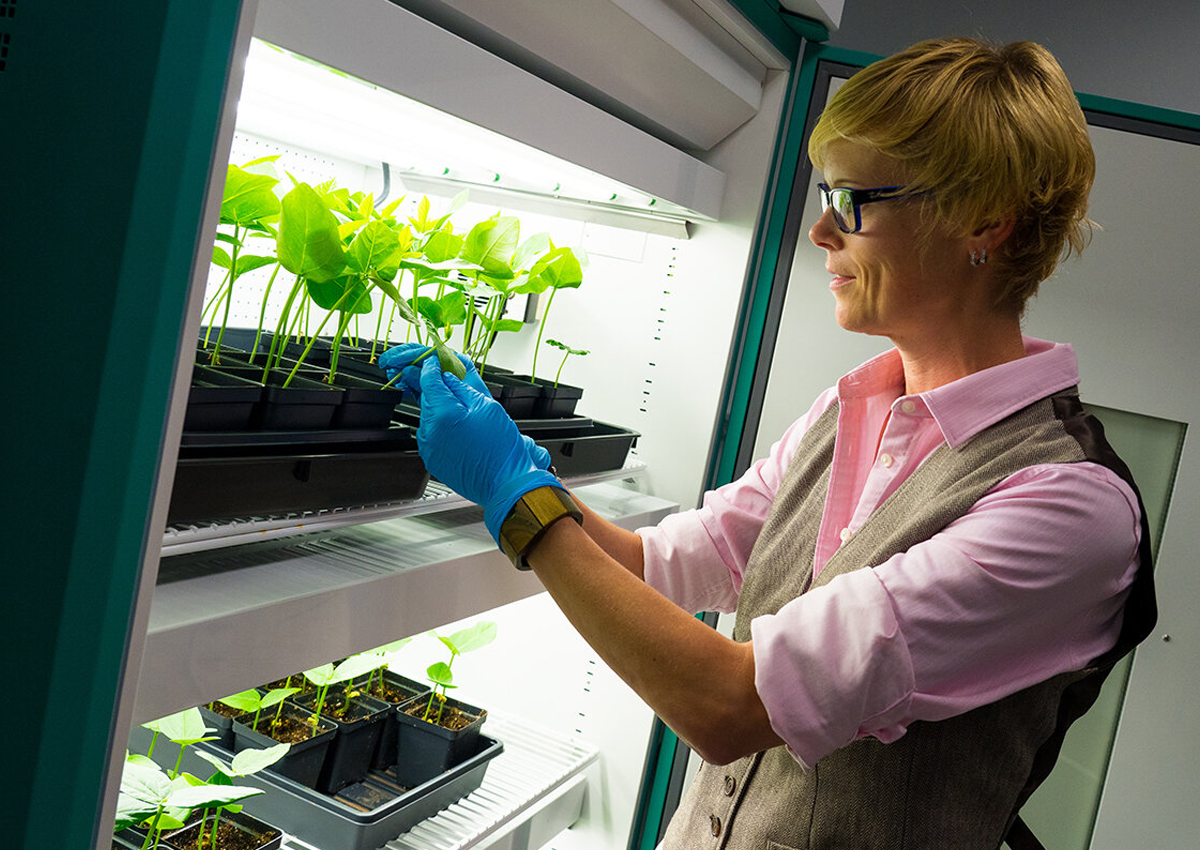
Nanoengineers Combine Molecular Farming and Advanced Manufacturing to Develop COVID-19 Vaccine
April 29, 2020| |
Nanoengineers at the University of California San Diego (UC San Diego) are working on an unusual candidate for COVID-19 vaccine: a plant virus. Led by UC San Diego nanoengineering professors Nicole Steinmetz and Jon Pokorski, the team's goal is to use plants to create a stable, easy to manufacture vaccine that can be shipped around the globe.
Steinmetz, who is the director of the Center for NanoImmunoEngineering at UC San Diego said, "To really make an impact, we are making a vaccine that's stable at room temperature and above so it can be shipped—without refrigeration—throughout the world and be distributed to resource-poor areas." While the Steinmetz lab works on vaccine development, the Pokorski lab will work on vaccine delivery devices in the form of slow-release microneedle patches that are inexpensive and also easy to manufacture and ship worldwide.
To create the vaccine, the team is using a plant virus that infects legumes and engineering it to look like SARS-CoV-2. Molecular signatures called peptides that are specific to SARS-CoV-2 will be woven onto the surface of the plant virus so it can stimulate an immune response.
The beauty of their approach is that the plant virus is non-infectious in humans, said Steinmetz, whose lab specializes in engineering plant viruses to treat plant and human health. Also, plant viruses are easy to produce in large scales because they can be grown on plants through molecular farming. Plant viruses are extremely stable up to high temperatures too, so the team's vaccine is compatible with the methods that will be used to fabricate the microneedle patches.
For more details, read the article in the UC San Diego News Center.
| |
You might also like:
- COVID-19 Vaccine Development Using New, Fast-Growing Tobacco Plant Technology
- Researchers in Spain Use Biotech to Produce SARS-CoV-2 Vaccine in Plants
- Viable Vaccine Candidate for COVID-19 Developed Using Proprietary Plant-based Technology
Biotech Updates is a weekly newsletter of ISAAA, a not-for-profit organization. It is distributed for free to over 22,000 subscribers worldwide to inform them about the key developments in biosciences, especially in biotechnology. Your support will help us in our mission to feed the world with knowledge. You can help by donating as little as $10.
-
See more articles:
-
News from Around the World
- Global Report Reveals Scope of Food Crises as COVID-19 Poses New Risks to Vulnerable Countries
- New Video: We are ISAAA
- Rice Genetically Engineered to Resist Extreme Heat also Produces Up to 20% More Grain
- 10-year Post-Market Evaluation in EU Reports No Adverse Effects by GM Maize MON810
-
Research Highlights
- Zeaxanthin‐rich Tomato Fruit Developed Through Genetic Manipulations of Carotenoid Biosynthesis
- Brightest Engineered Plants Glow Throughout Life Cycle
-
Plant
- Genome-edited Camelina Receives Positive Response from USDA APHIS, Field Trial Proceeds
- Ag-economist Pushes for Regulatory Reforms, Renewed Public Debate on New Plant Breeding Techniques
-
Health
- FAO, IFAD, World Bank, and WFP Joint Statement on COVID-19 Impacts on Food Security and Nutrition: Countries Must Work Together to Ensure Food for All
- Nanoengineers Combine Molecular Farming and Advanced Manufacturing to Develop COVID-19 Vaccine
-
Read the latest: - Biotech Updates (January 21, 2026)
- Gene Editing Supplement (December 17, 2025)
- Gene Drive Supplement (February 22, 2023)
-
Subscribe to BU: - Share
- Tweet

